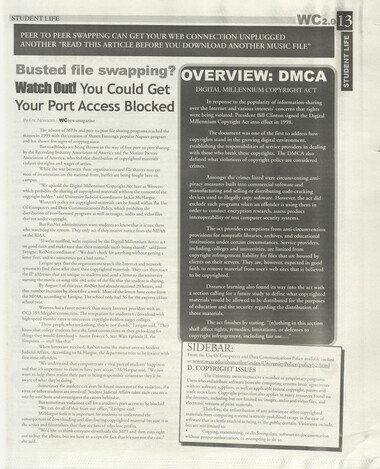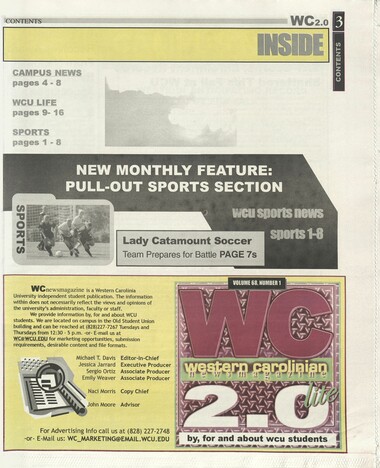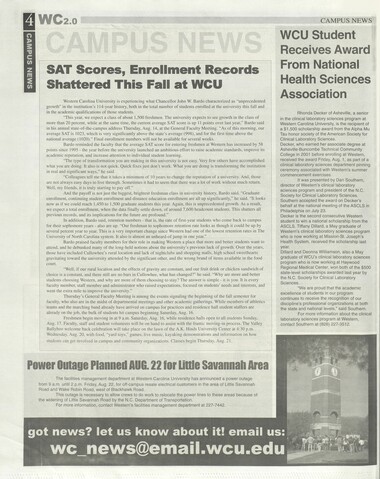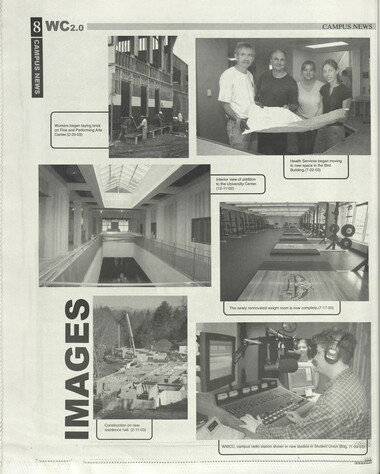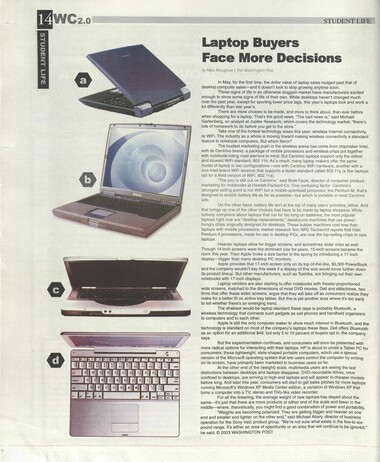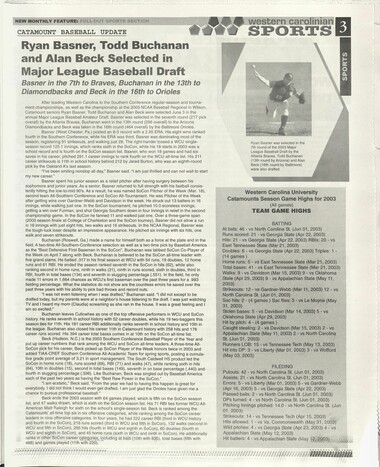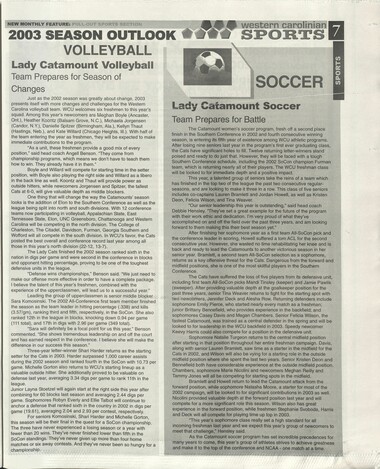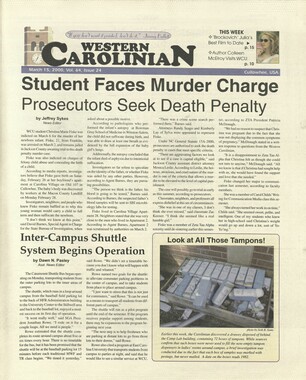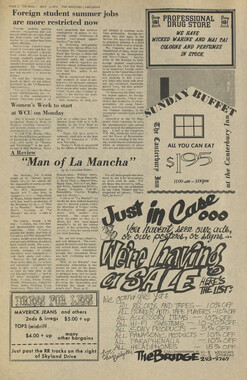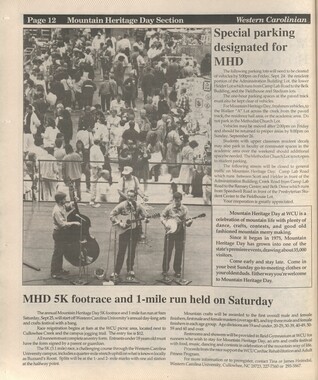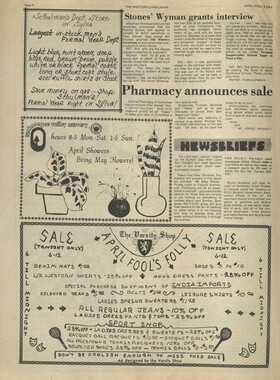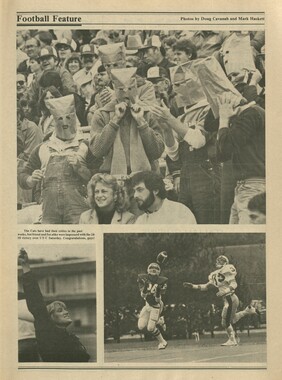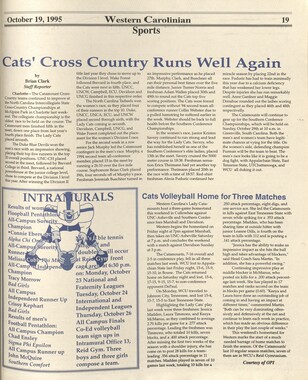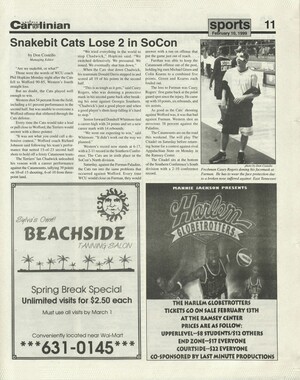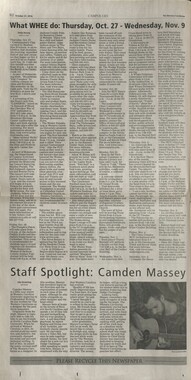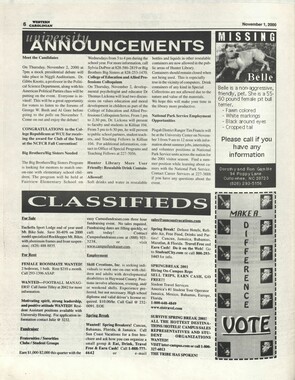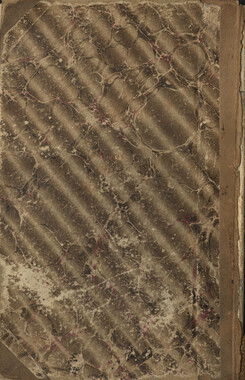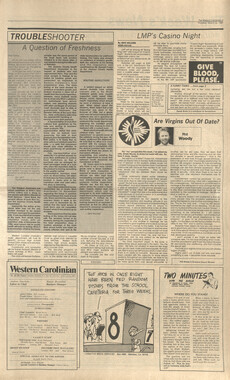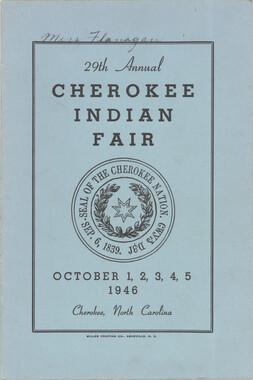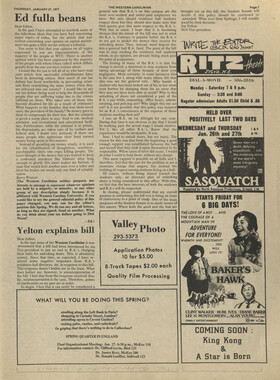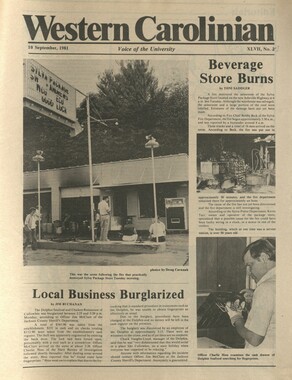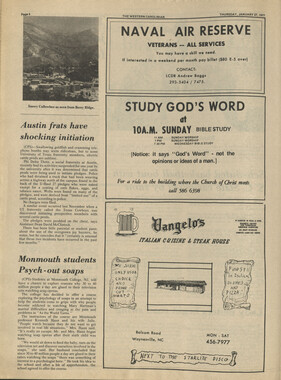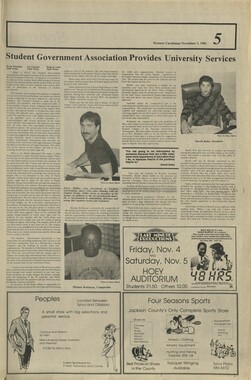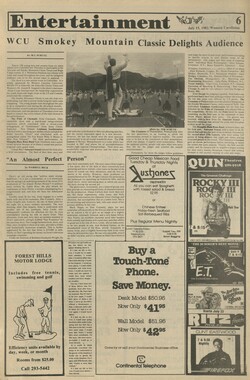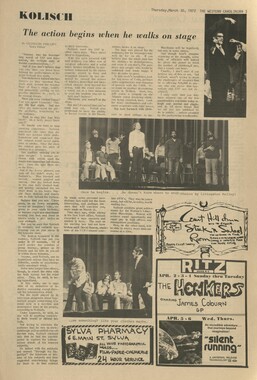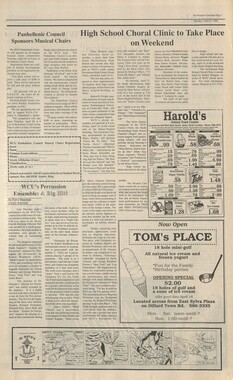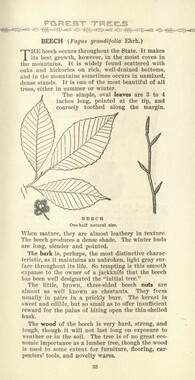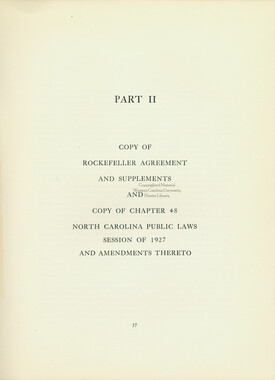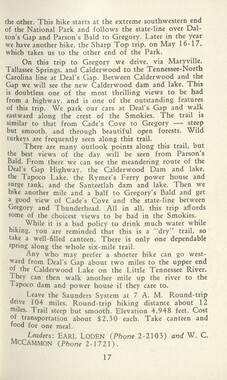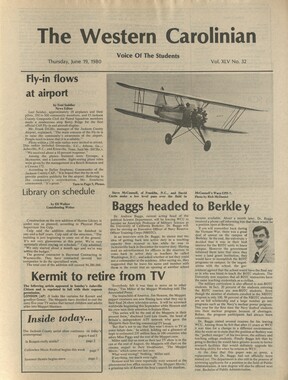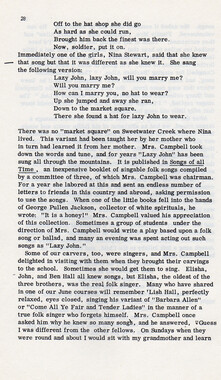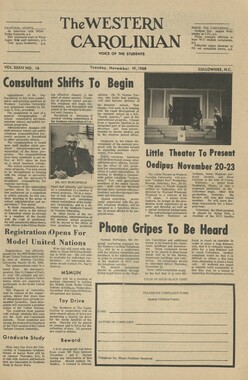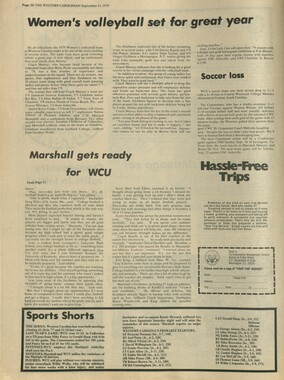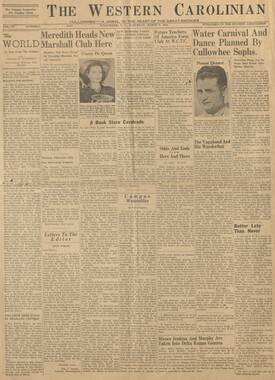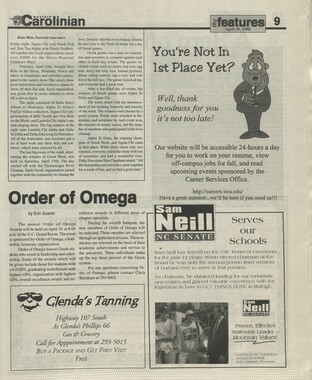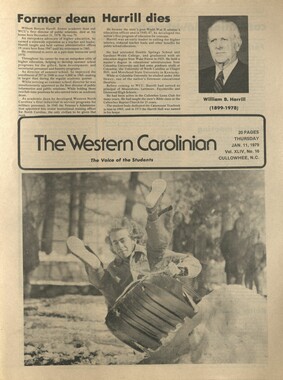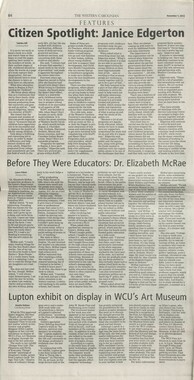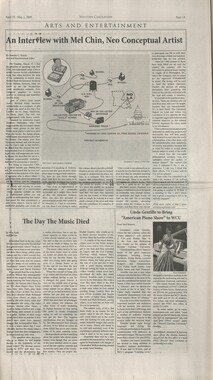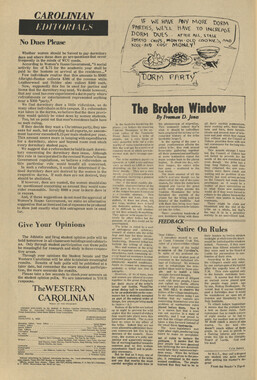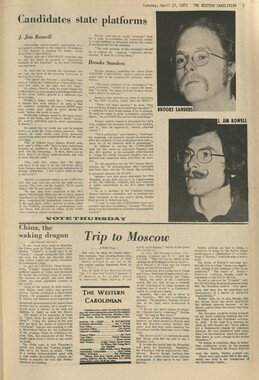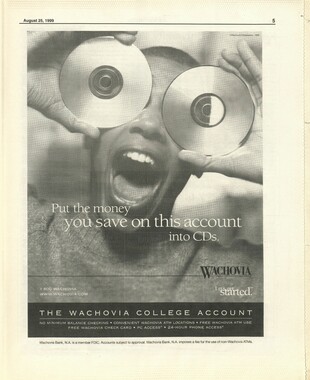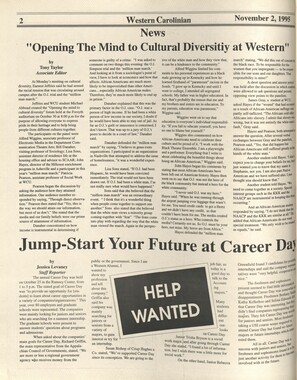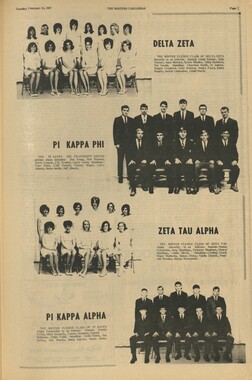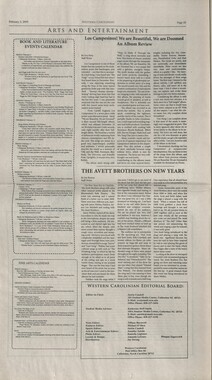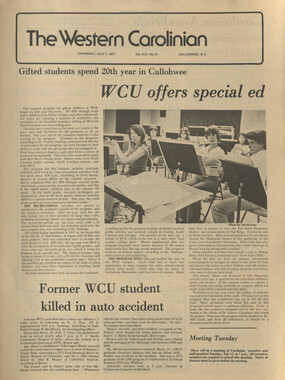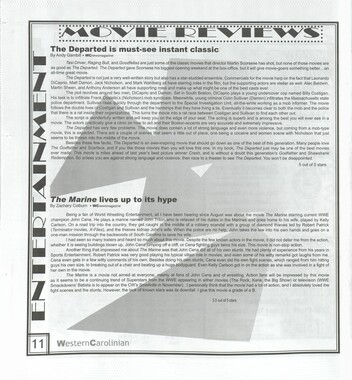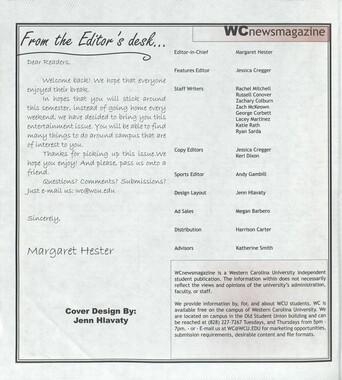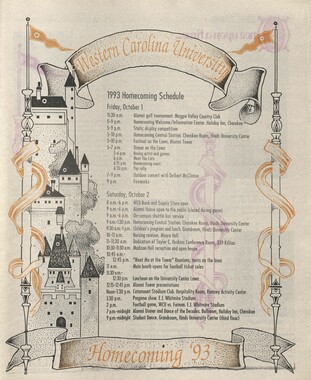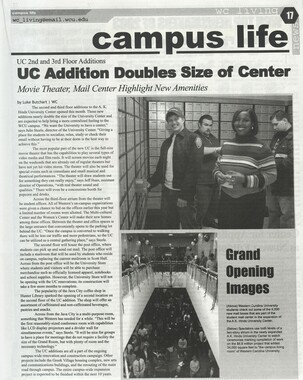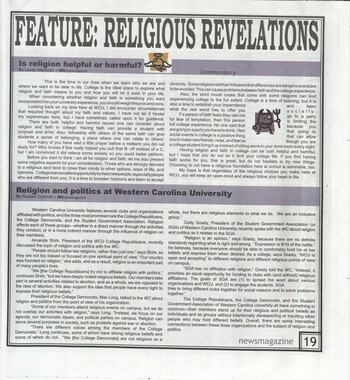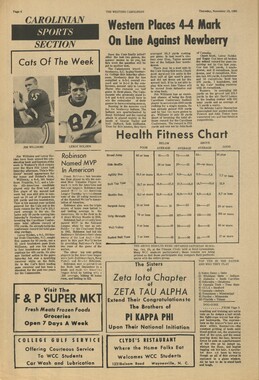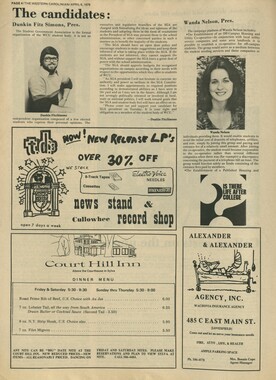Western Carolina University (21)
View all
- Canton Champion Fibre Company (2308)
- Cherokee Traditions (291)
- Civil War in Southern Appalachia (165)
- Craft Revival (1942)
- George Masa Collection (137)
- Great Smoky Mountains - A Park for America (3080)
- Highlights from Western Carolina University (422)
- Horace Kephart (973)
- Journeys Through Jackson (159)
- LGBTQIA+ Archive of Jackson County (89)
- Oral Histories of Western North Carolina (318)
- Picturing Appalachia (6617)
- Stories of Mountain Folk (413)
- Travel Western North Carolina (153)
- Western Carolina University Fine Art Museum Vitreograph Collection (129)
- Western Carolina University Herbarium (92)
- Western Carolina University: Making Memories (738)
- Western Carolina University Publications (2491)
- Western Carolina University Restricted Electronic Theses and Dissertations (146)
- Western North Carolina Regional Maps (71)
- World War II in Southern Appalachia (131)
University of North Carolina Asheville (6)
View all
- Allanstand Cottage Industries (62)
- Appalachian National Park Association (53)
- Bennett, Kelly, 1890-1974 (1463)
- Berry, Walter (76)
- Brasstown Carvers (40)
- Carver, George Washington, 1864?-1943 (26)
- Cathey, Joseph, 1803-1874 (1)
- Champion Fibre Company (233)
- Champion Paper and Fibre Company (297)
- Cherokee Indian Fair Association (16)
- Cherokee Language Program (22)
- Crowe, Amanda (40)
- Edmonston, Thomas Benton, 1842-1907 (7)
- Ensley, A. L. (Abraham Lincoln), 1865-1948 (275)
- Fromer, Irving Rhodes, 1913-1994 (70)
- George Butz (BFS 1907) (46)
- Goodrich, Frances Louisa (120)
- Grant, George Alexander, 1891-1964 (96)
- Heard, Marian Gladys (60)
- Kephart, Calvin, 1883-1969 (15)
- Kephart, Horace, 1862-1931 (313)
- Kephart, Laura, 1862-1954 (67)
- Laney, Gideon Thomas, 1889-1976 (439)
- Masa, George, 1881-1933 (61)
- McElhinney, William Julian, 1896-1953 (44)
- Niggli, Josephina, 1910-1983 (10)
- North Carolina Park Commission (105)
- Osborne, Kezia Stradley (9)
- Owens, Samuel Robert, 1918-1995 (11)
- Penland Weavers and Potters (36)
- Roberts, Vivienne (15)
- Roth, Albert, 1890-1974 (142)
- Schenck, Carl Alwin, 1868-1955 (1)
- Sherrill's Photography Studio (2565)
- Southern Highland Handicraft Guild (127)
- Southern Highlanders, Inc. (71)
- Stalcup, Jesse Bryson (46)
- Stearns, I. K. (213)
- Thompson, James Edward, 1880-1976 (226)
- United States. Indian Arts and Crafts Board (130)
- USFS (683)
- Vance, Zebulon Baird, 1830-1894 (1)
- Weaver, Zebulon, 1872-1948 (58)
- Western Carolina College (230)
- Western Carolina Teachers College (282)
- Western Carolina University (2008)
- Western Carolina University. Mountain Heritage Center (18)
- Whitman, Walt, 1819-1892 (10)
- Wilburn, Hiram Coleman, 1880-1967 (73)
- Williams, Isadora (3)
- Cain, Doreyl Ammons (0)
- Crittenden, Lorraine (0)
- Rhodes, Judy (0)
- Smith, Edward Clark (0)
- Appalachian Region, Southern (3032)
- Asheville (N.C.) (1945)
- Avery County (N.C.) (26)
- Blount County (Tenn.) (195)
- Buncombe County (N.C.) (1680)
- Cherokee County (N.C.) (283)
- Clay County (N.C.) (556)
- Graham County (N.C.) (238)
- Great Smoky Mountains National Park (N.C. and Tenn.) (525)
- Haywood County (N.C.) (3573)
- Henderson County (N.C.) (70)
- Jackson County (N.C.) (4925)
- Knox County (Tenn.) (35)
- Knoxville (Tenn.) (13)
- Lake Santeetlah (N.C.) (10)
- Macon County (N.C.) (421)
- Madison County (N.C.) (216)
- McDowell County (N.C.) (39)
- Mitchell County (N.C.) (135)
- Polk County (N.C.) (35)
- Qualla Boundary (982)
- Rutherford County (N.C.) (78)
- Swain County (N.C.) (2185)
- Transylvania County (N.C.) (270)
- Watauga County (N.C.) (12)
- Waynesville (N.C.) (86)
- Yancey County (N.C.) (72)
- Aerial Photographs (3)
- Aerial Views (60)
- Albums (books) (4)
- Articles (1)
- Artifacts (object Genre) (228)
- Bibliographies (1)
- Biography (general Genre) (2)
- Cards (information Artifacts) (38)
- Clippings (information Artifacts) (192)
- Copybooks (instructional Materials) (3)
- Crafts (art Genres) (622)
- Depictions (visual Works) (21)
- Design Drawings (1)
- Digital Moving Image Formats (2)
- Drawings (visual Works) (185)
- Envelopes (101)
- Exhibitions (events) (1)
- Facsimiles (reproductions) (1)
- Fiction (general Genre) (4)
- Financial Records (12)
- Fliers (printed Matter) (67)
- Glass Plate Negatives (381)
- Guidebooks (2)
- Internegatives (10)
- Interviews (823)
- Land Surveys (102)
- Letters (correspondence) (1045)
- Manuscripts (documents) (618)
- Maps (documents) (177)
- Memorandums (25)
- Minutes (administrative Records) (59)
- Negatives (photographs) (6090)
- Newsletters (1290)
- Newspapers (2)
- Notebooks (8)
- Occupation Currency (1)
- Paintings (visual Works) (1)
- Pen And Ink Drawings (1)
- Periodicals (194)
- Personal Narratives (10)
- Photographs (12977)
- Plans (maps) (1)
- Poetry (6)
- Portraits (4568)
- Postcards (329)
- Programs (documents) (181)
- Publications (documents) (2444)
- Questionnaires (65)
- Relief Prints (26)
- Sayings (literary Genre) (1)
- Scrapbooks (282)
- Sheet Music (2)
- Slides (photographs) (402)
- Songs (musical Compositions) (2)
- Sound Recordings (802)
- Specimens (92)
- Speeches (documents) (18)
- Tintypes (photographs) (8)
- Transcripts (329)
- Text Messages (0)
- A.L. Ensley Collection (275)
- Appalachian Industrial School Records (7)
- Appalachian National Park Association Records (336)
- Axley-Meroney Collection (2)
- Bayard Wootten Photograph Collection (20)
- Bethel Rural Community Organization Collection (7)
- Blumer Collection (5)
- C.W. Slagle Collection (20)
- Canton Area Historical Museum (2110)
- Carlos C. Campbell Collection (462)
- Cataloochee History Project (64)
- Cherokee Studies Collection (4)
- Daisy Dame Photograph Album (5)
- Daniel Boone VI Collection (1)
- Doris Ulmann Photograph Collection (112)
- Elizabeth H. Lasley Collection (1)
- Elizabeth Woolworth Szold Fleharty Collection (4)
- Frank Fry Collection (95)
- George Masa Collection (173)
- Gideon Laney Collection (452)
- Hazel Scarborough Collection (2)
- Hiram C. Wilburn Papers (28)
- Historic Photographs Collection (236)
- Horace Kephart Collection (861)
- Humbard Collection (33)
- Hunter and Weaver Families Collection (1)
- I. D. Blumenthal Collection (4)
- Isadora Williams Collection (4)
- Jesse Bryson Stalcup Collection (47)
- Jim Thompson Collection (224)
- John B. Battle Collection (7)
- John C. Campbell Folk School Records (80)
- John Parris Collection (6)
- Judaculla Rock project (2)
- Kelly Bennett Collection (1482)
- Love Family Papers (11)
- Major Wiley Parris Civil War Letters (3)
- Map Collection (12)
- McFee-Misemer Civil War Letters (34)
- Mountain Heritage Center Collection (4)
- Norburn - Robertson - Thomson Families Collection (44)
- Pauline Hood Collection (7)
- Pre-Guild Collection (2)
- Qualla Arts and Crafts Mutual Collection (12)
- R.A. Romanes Collection (681)
- Rosser H. Taylor Collection (1)
- Samuel Robert Owens Collection (94)
- Sara Madison Collection (144)
- Sherrill Studio Photo Collection (2558)
- Smoky Mountains Hiking Club Collection (616)
- Stories of Mountain Folk - Radio Programs (374)
- The Reporter, Western Carolina University (510)
- Venoy and Elizabeth Reed Collection (16)
- WCU Gender and Sexuality Oral History Project (36)
- WCU Mountain Heritage Center Oral Histories (25)
- WCU Oral History Collection - Mountain People, Mountain Lives (71)
- WCU Students Newspapers Collection (1923)
- Western North Carolina Tomorrow Black Oral History Project (69)
- William Williams Stringfield Collection (2)
- Zebulon Weaver Collection (109)
- African Americans (390)
- Appalachian Trail (35)
- Artisans (521)
- Cherokee art (84)
- Cherokee artists -- North Carolina (10)
- Cherokee language (21)
- Cherokee pottery (101)
- Cherokee women (208)
- Church buildings (190)
- Civilian Conservation Corps (U.S.) (111)
- College student newspapers and periodicals (2012)
- Dams (108)
- Dance (1023)
- Education (222)
- Floods (63)
- Folk music (1015)
- Forced removal, 1813-1903 (2)
- Forest conservation (220)
- Forests and forestry (1198)
- Gender nonconformity (4)
- Great Smoky Mountains National Park (N.C. and Tenn.) (181)
- Hunting (47)
- Landscape photography (25)
- Logging (122)
- Maps (83)
- Mines and mineral resources (9)
- North Carolina -- Maps (18)
- Paper industry (38)
- Postcards (255)
- Pottery (135)
- Railroad trains (72)
- Rural electrification -- North Carolina, Western (3)
- School integration -- Southern States (2)
- Segregation -- North Carolina, Western (5)
- Slavery (5)
- Sports (452)
- Storytelling (243)
- Waterfalls -- Great Smoky Mountains (N.C. and Tenn.) (66)
- Weaving -- Appalachian Region, Southern (280)
- Wood-carving -- Appalachian Region, Southern (328)
- World War, 1939-1945 (173)
Western Carolinian Volume 68 Number 01
Item
Item’s are ‘child’ level descriptions to ‘parent’ objects, (e.g. one page of a whole book).
-
-
STUDENT LIFE PEER TO PEER SWAPPING CAN GET YOUR WEB CONNECTION UNPLUGGED ANOTHER "READ THIS ARTICLE BEFORE YOU DOWNLOAD ANOTHER MUSIC FILE" OVERVIEW: DMCA Your Port Access Blocked By Eric Newsom - WCnewsmagazine The advent of MP3s and peer-to-peer file sharing programs reached the masses in 1999 with the creation of Shawn Fanning's popular Napster program and has shown few signs of stopping since. But roadblocks are being thrown in the way of free peer-to-peer sharing by the Recording Industry Association of America and the Motion Picture Association of America, who feel that distribution of copyrighted materials violates the rights and wages of artists. While the war between these organizations and file sharers may get most of its attention on the national front, battles are being fought here on campus. "We uphold the Digital Millennium Copyright Act here at Western, which prohibits the sharing of copyrighted materials without the consent of the copyright holder," said University Judicial Coordinator Jackie McHargue. Western's policy on copyrighted materials can be found within the Use Of Computers and Data Communications Policy, which prohibits the distribution of non-licensed programs as well as images, audio and video files that are under copyright. But ResNet administrators want students to know that it is not them who watchdog the system. They only act if they receive notice from the MPAA or the RIAA. "If we're notified, we're required by the Digital Millennium Act to act on good faith and make sure that their materials aren't being shared," said Jason Lavigne, ResNet coordinator. "We don't check for anything without getting a letter first, and we sometimes get a bad name." Lavigne says that the organizations search the Internet and network systems to find those who share their copyrighted materials. They can then trace the IP addresses that are unique to students and send a letter to the university naming the movie or song title and artist of the file that the student is sharing. By August 1 of this year, ResNet had already received 29 letters, and that number increases by about five a week. Most of the letters have come from the MPAA, according to Lavigne. The school only had 36 for the entirety of last school year. Western has a faster network than many Internet providers with an OC3 155 Megabit connection. The temptation for students to download with high-speed transfer rates is one reason copyright holders target colleges. "These people who are looking, they're not dumb," Lavigne said. "They know that college students have the faster connections so they go looking for things they would download — Austin Powers 3, Star Wars Episode Il, the Simpsons stuff like that." When letters are received, ResNet turns the matter over to Student Judicial Affairs. According to McHargue, the department tries to be lenient with first-time offenders. "We understand that computers are a vital part of students' happiness and that it's important to them to have port access," McHargue said. "We just want to help them realize their part in being responsible citizens so they'll be aware of what they're doing." Sometimes the student can even be found innocent of the violation, if a virus or other students are involved. Student Judicial Affairs takes each case on a one-by-one basis and investigates the causes behind it. But sometimes violations call for a student's port access to be blocked. "We can do all of that from our office," Lavigne said. McHargue feels it is important for students to understand the consequences of downloading and distributing copyrighted material because it is the artists and filmmakers that they are fans of who lose profits. "We'd like to think everyone downloads the MP3 and then runs right out to buy the album, but we have to accept the fact that it's just not the case, she said. DIGITAL MILLENNIUM COPYRIGHT ACT In response to the popularity of information-sharing ovei the Internet and various interests' concerns that rights were being violated, President Bill Clinton signed the Digital Millennium Copyright Act into effect in 1998. The document was one of the first to address how copyrights stand in the growing digital environment, establishing the responsibilities of service providers in dealing with those who break these copyrights. The DMCA also defined what violations of copyright policy are considered crimes. Amongst the crimes listed were circumventing anti- piracy measures built into commercial software and manufacturing and selling or distributing code-cracking devices used to illegally copy software. However, the act did exclude such programs when an offender is using them in order to conduct encryption research, assess product interoperability or test computer security systems. The act provides exemptions from anti-circumvention provisions for nonprofit libraries, archives, and educational institutions under certain circumstances. Service providers, including colleges and universities, are limited from copyright infringement liability for files that are housed by clients on their servers. They are, however, expected in good faith to remove material from user's web sites that is believed to be copyrighted. Distance learning also found its way into the act with a section calling for a future study to define what copyrighted materials would be allowed to be distributed for the purposes of education and the security regarding the distribution of those materials. The act finishes by stating, "[n]othing in this section shall affect rights, remedies, limitations, or defenses to copyright infringement, including fair use.... " SIDEBAR: From the Use Of Computers and Data Communications Policy available on-line at: www.wcu.edu/chancellor/index/Universi Polic / olic 2.html D. COPYRIGHT ISSUES The University owns licenses to a number of proprietary programs. Users who redistribute software from the computing systems break agreements with its software suppliers, as well as applicable federal copyright, patent and trade secret laws. Copyright protection also applies to many resources found on the Internet, including but not limited to, images, audio and video files, and electronic versions of print materials. Therefore, the redistribution of any software or other copyrighted materials from computing systems is strictly prohibited except in the case of software that is clearly marked as being in the public domain. Violations include, but are not limited to: Copying, transmitting, or disclosing data, software or documentation without proper authorization, or attempting to do so.
Object
Object’s are ‘parent’ level descriptions to ‘children’ items, (e.g. a book with pages).
-
The Western Carolinian is Western Carolina University's student-run newspaper. The paper was published as the Cullowhee Yodel from 1924 to 1931 before changing its name to The Western Carolinian in 1933.
-
